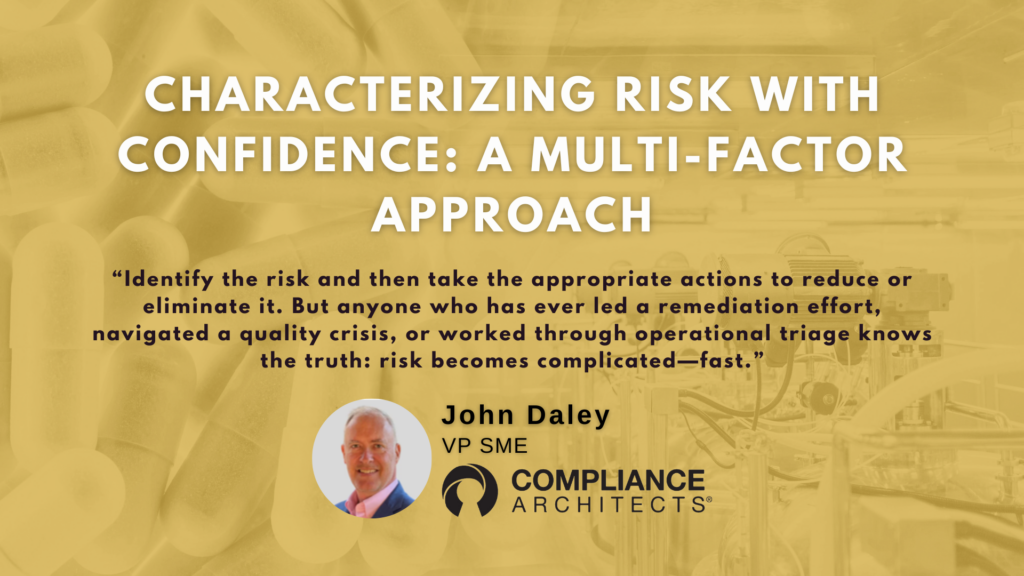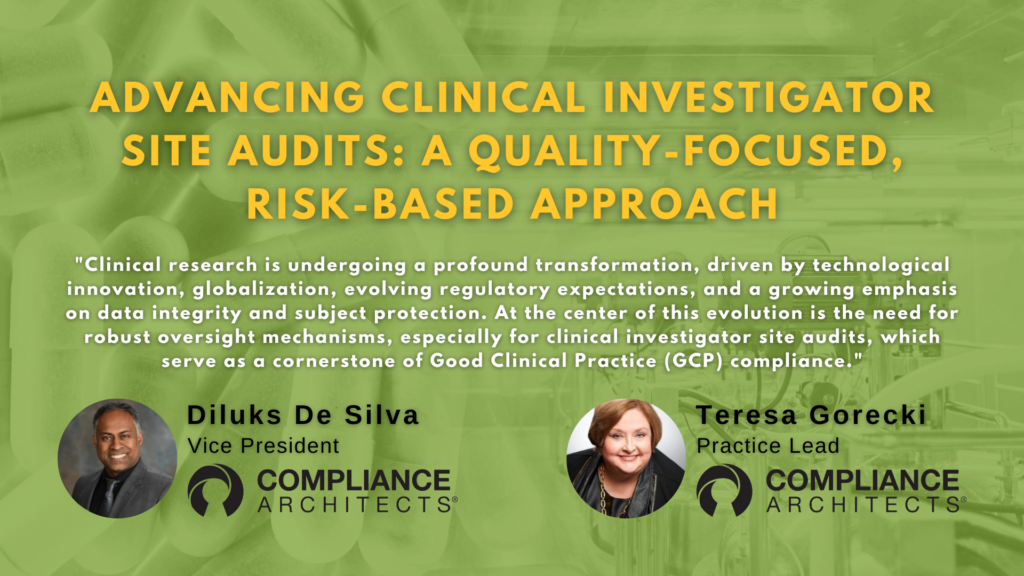
On Thursday, December 7, Deputy Assistant US Attorney General Ethan P. Davis, US Department of Justice, Consumer Protection Branch, gave a speech at the Food and Drug Law Institute Enforcement Litigation and Compliance Conference in Washington, DC. In this speech, Deputy Assistant US Attorney General Davis outlined what may be the first tangible, specific public policy guidance on enforcement that FDA regulated industry has received from the new administration.
Table of Contents
Commitment to Consumer Protection and Regulatory Integrity
In the speech, Deputy Assistant US Attorney General Davis stated that the Consumer Protection Branch is responsible for DOJ’s efforts to “enforce statutes designed to protect the health, safety and economic security of American consumers” and that the FDA is one of the Consumer Protection Branch’s key partners. Deputy Assistant US Attorney General Davis even provided a personal reflection regarding the importance of safe food, drugs and devices to all Americans, by offering that his family, with a nine-year-old son, is concerned with giving their son “only the best and safest foods and medicines” but also reflected that, as “[he has] quickly found out, [he] can’t protect [his son] from everything.”
The cornerstone policy positions were outlined under a section heading in the transcript entitled “The Rule of Law.” This is where the key elements of the Department’s policy are revealed, and reveal a number of key themes:
- DOJ is ensuring that industry “has the room to continue to innovate”, and
- That “the rule of law” is a critical part of DOJ’s approach to “accomplishing [that] mission.”
The Deputy Assistant US Attorney General then expands on this principle of the Rule of Law phase and states, that the “rule of law” is based on the principle that the United States is governed by law “and not by the arbitrary decisions of government officials” and that the rule of law is about “consistency and predictability”.
Immediately following, and in what appears to this author to be a principle quite in conflict with the foregoing goals, the Deputy Assistant US Attorney General then outlines DOJ’s efforts to “roll back unnecessary regulations” and to end the practice of DOJ creating “binding obligations” through the issuance of guidance documents. In other words, DOJ believes that simple notice and comment rulemaking is sufficient (and apparently preferable) to Agencies (in this case DOJ) providing formal guidance to regulated parties. How this increases “consistency and predictability” in the rule of law is not clear – to me anyway.
Enforcement Discretion
The next main topic covered by the Deputy Assistant US Attorney General is the topic of enforcement discretion. Citing language from Attorney General Robert Jackson from 75 years ago that “no prosecutor can even investigate all of the cases in which he receives complaints,” the Deputy Assistant US Attorney General re-affirmed Attorney General Jackson’s philosophy, and affirmed it as DOJ’s current philosophy, i.e., that it will “select the cases … in which the offense is the most flagrant, the public harm the greatest, and the proof the most certain.”
Civil Liability
Continuing on, and weaving in his prior statements concerning the policy of regulatory roll-backs, the Deputy Assistant US Attorney General posited that because there are “thousands of criminal offenses and thousands more laws that can form the basis of civil liability” and by also looking at the “hundreds of thousands of federal regulations – many inaccessible or incomprehensible” then how do people in the private sector possibly know what conduct will trigger a government investigation? The Deputy Assistant US Attorney General goes further and states that:
the existence of so many laws located in so many places can undermine confidence in the rule of law as evenhanded, accessible, and just. And when you all cannot predict what conduct will end up triggering an investigation by the Justice Department, our enforcement efforts operate to chill innovation.
So where does this clear policy approach leave the Deputy Assistant US Attorney General and the Department’s approach to investigations and pursuit of bad actors? He continues with how these cases will be approached:
[W]hen a new investigation or a potential indictment crosses my desk, I ask myself, and my team, a few questions: Is this a case where people got hurt, or where there was a clear threat of harm? Is this a case where people got defrauded? Is this a case where the target of the investigation acted knowingly or recklessly? If the answer to those questions is “yes,” we will pursue the matter vigorously in the name of protecting the health, safety, and economic security of the American consumer.
The Deputy Assistant US Attorney General closes this part of the speech with the following:
The point of this exercise is to weed out technical regulatory violations in order to focus our enforcement resources on practices that threaten consumer health or safety.
* * *
Using the Department of Justice’s resources to pursue one-off technical regulatory violations where no one was hurt or defrauded, and where there was no clear risk of consumer harm, does not promote consumer health, safety, or economic security. It only forces companies to over-emphasize technical compliance issues — often involving rules that take a lot of effort to interpret — instead of focusing their resources on developing new, lifesaving medicines and devices.
Opioids, Dietary Supplements and Compounding Pharmacies Priorities
The third part of the speech outlined enforcement action priorities for DOJ and Consumer Protection Board and includes opioids, dietary supplements and compounding pharmacies. Characterizing these industry participants as largely “law abiding” companies, DOJ / CPB will focus – especially in the case of dietary supplements – on the “bad apples” of the industry – whoever they are.
The Park Doctrine
During the fourth and final part of the speech,, the Deputy Assistant US Attorney General addressed what is known as The Park Doctrine.[1] This doctrine has been a backbone of Food and Drug Law and enforcement approaches since the earlier United States v. Dotterweich, 320 U.S. 277 (1943). Now however, the Department of Justice will no longer consider violations of the law alone a sufficient basis for prosecutions. As the Deputy Assistant US Attorney General states:
[I]n evaluating Park prosecutions, we consider whether the unlawful conduct implicates public safety or has resulted in physical harm to individuals. We also look for actual knowledge or willful blindness as to the unlawful conduct on the part of each individual we are considering charging. And we generally avoid getting involved in good faith scientific disputes, because we do not want to stifle scientific exploration and debate, nor do we wish to put those researching creative or innovative means of medical care in fear of criminal liability.
These policy statements are a significant change in direction and approach from prior Administrations, Democratic or Republican, towards the protection of consumers by the Department of Justice. Overall, bad actors will have more license to act because of greater deference towards what may constitute “egregious” conduct or “physical harm” to individuals. Whether there will be practical implications to these changes is of course, unknown, and will have to be viewed through the lens of history – not through the distortion of a crystal ball.
[1] UNITED STATES v. PARK, 421 U.S. 658 (1975), standing for the proposition that “responsible individuals” may be held personally liable for acts in violation of the Federal Food Drug and Cosmetic Act regardless of their individual knowledge of or participation in the violative conduct.
Download the transcript of the Deputy US Assistant Attorney General’s speech here
Contact Us
To learn more about the Deputy Assistant US Attorney General’s speech at FDLI, fill out the contact form below to get in touch with our team.





